#divinity: heroism
Text
"Navigating the Celestial Odyssey: Apollonius Rhodius' 'The Argonautica' in the Lyrical Rhythms of R. C. Seaton's Translation"
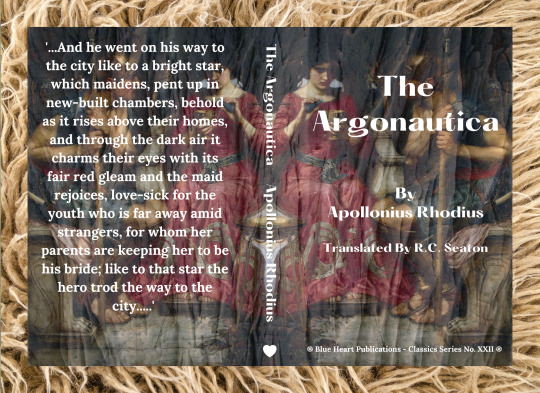
"The Argonautica" by Apollonius Rhodius, elegantly translated by R. C. Seaton, emerges as a literary gem that weaves the tale of the heroic quest for the Golden Fleece into the fabric of ancient Greek epic poetry. This classical masterpiece, written in the third century BCE, invites readers into the mythical world of heroes, gods, and maritime adventures. The title itself hints at the epic journey undertaken by the Argonauts and the rich tapestry of myths that unfold in Seaton's poetic rendering.
Seaton's translation captures the spirit of Apollonius Rhodius' original work, breathing life into the archaic verses while maintaining fidelity to the poetic essence of the ancient Greek epic. The title serves as a prelude to an odyssey that transcends mortal realms, navigating the cosmic expanse and the turbulent seas that define the Argonauts' quest. Seaton's lyrical craftsmanship transforms the narrative into a symphony of words, each stanza resonating with the echoes of antiquity.
At the core of "The Argonautica" is the heroic journey of Jason and his companions, the Argonauts, as they embark on a perilous expedition to retrieve the Golden Fleece. Seaton's translation masterfully conveys the heroism, camaraderie, and divine interventions that characterize this mythic voyage. The title acts as a compass, guiding readers through the labyrinthine narratives that unfold in the wake of the Argo's sails.
One of the notable features of Seaton's translation is his ability to preserve the nuances of Apollonius Rhodius' language, allowing readers to savor the intricacies of the poet's narrative technique. The title becomes a doorway to the ancient Greek world, beckoning readers to immerse themselves in the vibrant imagery, divine interventions, and the cosmic forces that shape the destiny of the Argonauts.
The multifaceted characters of "The Argonautica" come alive in Seaton's translation, each imbued with distinct personalities and motivations. From Jason's quest for glory to Medea's complex role as both lover and sorceress, the title encapsulates the ensemble of characters whose fates intertwine amidst the celestial currents. Seaton's translation skillfully navigates the emotional depths of these characters, breathing humanity into the larger-than-life figures of Greek mythology.
As the Argonauts encounter mythical beings, face treacherous challenges, and traverse uncharted waters, Seaton's translation maintains a delicate balance between the epic and the lyrical. The title becomes a beacon, illuminating the narrative twists and turns that mirror the celestial constellations guiding the Argo through the cosmos. Seaton's poetic rendering captures the awe-inspiring beauty and perilous nature of the ancient mariner's journey.
"The Argonautica" is not merely an adventure tale; it is a tapestry of myths interwoven with themes of destiny, love, and divine intervention. Seaton's translation accentuates the nuanced connections between mortal aspirations and the whims of the gods. The title beckons readers to explore the mythic undercurrents that flow beneath the surface of the narrative, inviting contemplation on the intersection of mortal agency and divine influence.
In conclusion, R. C. Seaton's translation of Apollonius Rhodius' "The Argonautica" is a poetic voyage that resonates with the majesty of ancient Greek epic storytelling. The title encapsulates the essence of this celestial odyssey, promising readers an immersion into the mythical realms that have captivated audiences for centuries. Seaton's lyrical prowess breathes new life into the age-old verses, ensuring that the adventures of the Argonauts continue to inspire awe and wonder in the hearts of contemporary readers.
"The Argonautica" by Apollonius Rhodius is available in Amazon in paperback 12.99$ and hardcover 20.99$ editions.
Number of pages: 219
Language: English
Rating: 9/10
Link of the book!
Review By: King's Cat
#Apollonius Rhodius#The Argonautica#R. C. Seaton#Ancient Greek epic#Golden Fleece#Heroic quest#Mythical world#Maritime adventures#Odyssey#Poetic translation#Lyrical craftsmanship#Cosmic expanse#Heroism#Divine interventions#Symphonies of words#Mythic voyage#Argo#Narrative labyrinth#Mythic characters#Jason#Medea#Fate#Celestial currents#Ancient mariner#Adventure tale#Tapestry of myths#Destiny#Love#Gods#Narrative twists
2 notes
·
View notes
Text
Fucking............ love auras man
#P A L A D I N S#SO OVERFLOWING WITH COMMITMENT AND DIVINE HEROISM THAT THEY RESHAPE THE FABRIC#OF THE WORLD AROUND THEM JUST BY BEING NEAR#AHHHHHHHHHHHHHH
5 notes
·
View notes
Text
𝔇𝔦𝔬 - 𝔖𝔱𝔞𝔫𝔡 𝔘𝔭 𝔞𝔫𝔡 𝔖𝔥𝔬𝔲𝔱
#Dio#Evil or Divine: Live in New York City#𝔇𝔦𝔬 - 𝔖𝔱𝔞𝔫𝔡 𝔘𝔭 𝔞𝔫𝔡 𝔖𝔥𝔬𝔲𝔱#Stand Up and Shout#Release date:#March 29th#2005#Live album#Genre:#Heavy Metal#Themes:#Heroism#Fantasy#Metaphors#Humanity#Death#USA
6 notes
·
View notes
Text
"Navigating the Celestial Odyssey: Apollonius Rhodius' 'The Argonautica' in the Lyrical Rhythms of R. C. Seaton's Translation"
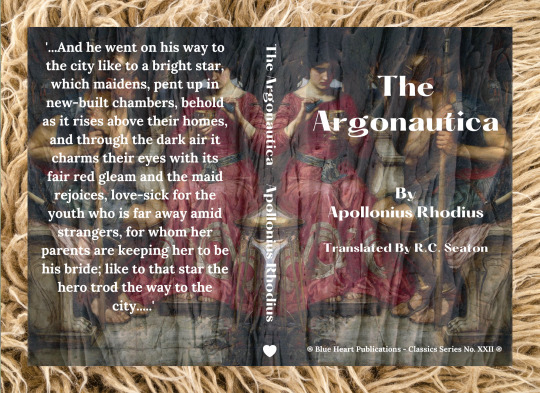
"The Argonautica" by Apollonius Rhodius, elegantly translated by R. C. Seaton, emerges as a literary gem that weaves the tale of the heroic quest for the Golden Fleece into the fabric of ancient Greek epic poetry. This classical masterpiece, written in the third century BCE, invites readers into the mythical world of heroes, gods, and maritime adventures. The title itself hints at the epic journey undertaken by the Argonauts and the rich tapestry of myths that unfold in Seaton's poetic rendering.
Seaton's translation captures the spirit of Apollonius Rhodius' original work, breathing life into the archaic verses while maintaining fidelity to the poetic essence of the ancient Greek epic. The title serves as a prelude to an odyssey that transcends mortal realms, navigating the cosmic expanse and the turbulent seas that define the Argonauts' quest. Seaton's lyrical craftsmanship transforms the narrative into a symphony of words, each stanza resonating with the echoes of antiquity.
At the core of "The Argonautica" is the heroic journey of Jason and his companions, the Argonauts, as they embark on a perilous expedition to retrieve the Golden Fleece. Seaton's translation masterfully conveys the heroism, camaraderie, and divine interventions that characterize this mythic voyage. The title acts as a compass, guiding readers through the labyrinthine narratives that unfold in the wake of the Argo's sails.
One of the notable features of Seaton's translation is his ability to preserve the nuances of Apollonius Rhodius' language, allowing readers to savor the intricacies of the poet's narrative technique. The title becomes a doorway to the ancient Greek world, beckoning readers to immerse themselves in the vibrant imagery, divine interventions, and the cosmic forces that shape the destiny of the Argonauts.
The multifaceted characters of "The Argonautica" come alive in Seaton's translation, each imbued with distinct personalities and motivations. From Jason's quest for glory to Medea's complex role as both lover and sorceress, the title encapsulates the ensemble of characters whose fates intertwine amidst the celestial currents. Seaton's translation skillfully navigates the emotional depths of these characters, breathing humanity into the larger-than-life figures of Greek mythology.
As the Argonauts encounter mythical beings, face treacherous challenges, and traverse uncharted waters, Seaton's translation maintains a delicate balance between the epic and the lyrical. The title becomes a beacon, illuminating the narrative twists and turns that mirror the celestial constellations guiding the Argo through the cosmos. Seaton's poetic rendering captures the awe-inspiring beauty and perilous nature of the ancient mariner's journey.
"The Argonautica" is not merely an adventure tale; it is a tapestry of myths interwoven with themes of destiny, love, and divine intervention. Seaton's translation accentuates the nuanced connections between mortal aspirations and the whims of the gods. The title beckons readers to explore the mythic undercurrents that flow beneath the surface of the narrative, inviting contemplation on the intersection of mortal agency and divine influence.
In conclusion, R. C. Seaton's translation of Apollonius Rhodius' "The Argonautica" is a poetic voyage that resonates with the majesty of ancient Greek epic storytelling. The title encapsulates the essence of this celestial odyssey, promising readers an immersion into the mythical realms that have captivated audiences for centuries. Seaton's lyrical prowess breathes new life into the age-old verses, ensuring that the adventures of the Argonauts continue to inspire awe and wonder in the hearts of contemporary readers.
"The Argonautica" by Apollonius Rhodius is available in Amazon in paperback 12.99$ and hardcover 20.99$ editions.
Number of pages: 219
Language: English
Rating: 9/10
Link of the book!
Review By: King's Cat
#Apollonius Rhodius#The Argonautica#R. C. Seaton#Ancient Greek epic#Golden Fleece#Heroic quest#Mythical world#Maritime adventures#Odyssey#Poetic translation#Lyrical craftsmanship#Cosmic expanse#Heroism#Divine interventions#Symphonies of words#Mythic voyage#Argo#Narrative labyrinth#Mythic characters#Jason#Medea#Fate#Celestial currents#Ancient mariner#Adventure tale#Tapestry of myths#Destiny#Love#Gods#Narrative twists
0 notes
Text
Fantasy Royal Hierarchy & Government Explained for Dummies
👑 The Royal Hierarchy:
High King/High Queen: The ultimate ruler of all the lands. Addressed as “Your Majesty.” They oversee multiple kingdoms and have the final say in all matters.
King/Queen: The rulers of individual kingdoms. Addressed as “Your Majesty.” They manage their own territories, make laws, and lead their armies into epic battles.
Prince/Princess: The children of the king and queen. Addressed as “Your Highness.” They’re next in line for the throne and often have their own mini-kingdoms to practice ruling.
Duke/Duchess: High-ranking nobles who control large regions within the kingdom. Addressed as “Your Grace.” They’re like the regional managers, handling local governance and military affairs.
Marquess/Marchioness: Nobles who oversee border territories. Addressed as “Lord” or “Lady.” They’re responsible for defending the kingdom’s edges and often have a mix of military and administrative duties.
Earl/Countess: Nobles who manage smaller regions within the kingdom. Addressed as “Lord” or “Lady.” They’re like the middle managers, ensuring everything runs smoothly in their areas.
Viscount/Viscountess: Nobles who assist earls and countesses. Addressed as “Lord” or “Lady.” They’re like the assistant managers, helping with local governance and administration.
Baron/Baroness: The lowest rank of nobility. Addressed as “Lord” or “Lady.” They control small areas of land and are responsible for local justice and order.
Lord/Lady: A general title for nobility. Addressed as “Lord” or “Lady.” Lords and ladies can hold various ranks and responsibilities within the kingdom.
Government Structure:
🏛️ The Council: A group of high-ranking nobles and advisors who help the king or queen make important decisions. Think of them as the board of directors.
🧙 The Wizard: The royal advisor with magical powers. They provide wisdom, cast spells, and sometimes meddle in politics.
⚔️ The Knight Commander: The head of the royal army. They lead the knights and soldiers into battle and ensure the kingdom’s defense.
📜 The Chancellor: The head of the kingdom’s finances and administration. They manage the treasury, collect taxes, and oversee the kingdom’s bureaucracy.
🎭 The Bard: The kingdom’s storyteller and historian. They spread news, sing songs of heroism, and keep the royal family’s image sparkling.
Other Classes:
🌳 Elves: Graceful and wise, elves often serve as advisors, scholars, or elite warriors. They have a deep connection to nature and magic, making them invaluable in both court and battlefield.
🌾 Peasants: The backbone of the kingdom. They work the land, pay taxes, and sometimes get caught up in the schemes of the nobility. Despite their humble status, they can be heroes in their own right.
💀 Necromancers: Masters of death magic. They can raise the dead, drain life energy, and command undead minions. Often feared and misunderstood, they can be powerful allies or dangerous enemies.
📚 Scholars: Also known as sages, librarians, or loremasters. Scholars are the kingdom’s intellectuals, possessing encyclopedic knowledge. They study ancient texts, advise on matters of history and magic, and often uncover secrets that can turn the tide of events.
⚔️ Heroes: Brave individuals who embark on epic quests. They can come from any class—knights, peasants, elves, or even necromancers. Heroes are defined by their courage, skill, and willingness to face danger for the greater good.
🙏 Priests/Priestesses: Spiritual leaders who serve the gods and goddesses of the realm. They perform rituals, offer guidance, and sometimes wield divine magic. Addressed as “Father,” “Mother,” or “Your Holiness”.
🐉 Dragons: Sometimes pets, sometimes pests. Always epic. They can be guardians of treasure, wise advisors, or terrifying foes.
Servants and Other Castle Inhabitants:
Steward: Manages the household and estate. Addressed as “Master Steward.”
Chamberlain: Oversees the private chambers and personal needs of the lord or lady. Addressed as “Master Chamberlain.”
Marshal: In charge of the stables and the training of knights. Addressed as “Master Marshal.”
Cook: Prepares meals for the household. Addressed as “Master/Mistress Cook.”
Maid: Responsible for cleaning and maintaining the castle. Addressed as “Mistress Maid.”
Squire: A young noble training to become a knight. Addressed as “Squire.”
Falconer: Takes care of the hunting birds. Addressed as “Master Falconer.”
Gardener: Maintains the castle gardens. Addressed as “Master/Mistress Gardener.”
Where They Dwell:
🏰 Castle: A fortified structure built for defense and residence. It includes towers, walls, a keep, and often a moat. The castle is the main residence of the king or queen and their court.
🏛️ Court: The royal household and the place where the king or queen holds court. It includes the throne room, great hall, and various chambers for the nobles and advisors.
🏡 Manor: The residence of a noble, usually a lord or lady. It’s less fortified than a castle and focuses more on comfort and domestic life.
Pro Tips:
Royal Drama: Expect lots of intrigue, secret plots, and power struggles. It’s like a medieval reality show.
Magic: Always a wildcard. It can solve problems or create new ones.
Quests: Royals love sending heroes on epic quests. It’s their way of handling problems without getting their hands dirty.
---
Oh hey, you made it to the end! 🎉 I see you’re still here because you’re passionate about your book and maybe a bit stuck with worldbuilding. Don’t let that WIP sit around for another 5 YEARS! 🚀
Get your writing process on the fast track and publish that book with ease using this POWERFUL and HELPFUL Notion template. It’s packed with everything you need to speed up your writing and get things DONE. ✍️✨
Why wait? Let’s make your writing dreams a reality! 🌟📚
Get it here now it's super affordable!






#writer#writing#writer things#writerblr#writerscorner#writing inspiration#writers and poets#writing tips#ao3 writer#author#fantasy writing#fantasy#writers on tumblr#writing inspo#writerscommunity#writer stuff#writing prompt#writers block#fantasy books
1K notes
·
View notes
Text
"I think Homer outwits most writers who have written on the War [fantasy archetype], by not taking sides.
The Trojan war is not and you cannot make it be the War of Good vs. Evil. It’s just a war, a wasteful, useless, needless, stupid, protracted, cruel mess full of individual acts of courage, cowardice, nobility, betrayal, limb-hacking-off, and disembowelment. Homer was a Greek and might have been partial to the Greek side, but he had a sense of justice or balance that seems characteristically Greek — maybe his people learned a good deal of it from him? His impartiality is far from dispassionate; the story is a torrent of passionate actions, generous, despicable, magnificent, trivial. But it is unprejudiced. It isn’t Satan vs. Angels. It isn’t Holy Warriors vs. Infidels. It isn’t hobbits vs. orcs. It’s just people vs. people.
Of course you can take sides, and almost everybody does. I try not to, but it’s no use; I just like the Trojans better than the Greeks. But Homer truly doesn’t take sides, and so he permits the story to be tragic. By tragedy, mind and soul are grieved, enlarged, and exalted.
Whether war itself can rise to tragedy, can enlarge and exalt the soul, I leave to those who have been more immediately part of a war than I have. I think some believe that it can, and might say that the opportunity for heroism and tragedy justifies war. I don’t know; all I know is what a poem about a war can do. In any case, war is something human beings do and show no signs of stopping doing, and so it may be less important to condemn it or to justify it than to be able to perceive it as tragic.
But once you take sides, you have lost that ability.
Is it our dominant religion that makes us want war to be between the good guys and the bad guys?
In the War of Good vs. Evil there can be divine or supernal justice but not human tragedy. It is by definition, technically, comic (as in The Divine Comedy): the good guys win. It has a happy ending. If the bad guys beat the good guys, unhappy ending, that’s mere reversal, flip side of the same coin. The author is not impartial. Dystopia is not tragedy.
Milton, a Christian, had to take sides, and couldn’t avoid comedy. He could approach tragedy only by making Evil, in the person of Lucifer, grand, heroic, and even sympathetic — which is faking it. He faked it very well.
Maybe it’s not only Christian habits of thought but the difficulty we all have in growing up that makes us insist justice must favor the good.
After all, 'Let the best man win' doesn’t mean the good man will win. It means, 'This will be a fair fight, no prejudice, no interference — so the best fighter will win it.' If the treacherous bully fairly defeats the nice guy, the treacherous bully is declared champion. This is justice. But it’s the kind of justice that children can’t bear. They rage against it. It’s not fair!
But if children never learn to bear it, they can’t go on to learn that a victory or a defeat in battle, or in any competition other than a purely moral one (whatever that might be), has nothing to do with who is morally better.
Might does not make right — right?
Therefore right does not make might. Right?
But we want it to. 'My strength is as the strength of ten because my heart is pure.'
If we insist that in the real world the ultimate victor must be the good guy, we’ve sacrificed right to might. (That’s what History does after most wars, when it applauds the victors for their superior virtue as well as their superior firepower.) If we falsify the terms of the competition, handicapping it, so that the good guys may lose the battle but always win the war, we’ve left the real world, we’re in fantasy land — wishful thinking country.
Homer didn’t do wishful thinking.
Homer’s Achilles is a disobedient officer, a sulky, self-pitying teenager who gets his nose out of joint and won’t fight for his own side. A sign that Achilles might grow up someday, if given time, is his love for his friend Patroclus. But his big snit is over a girl he was given to rape but has to give back to his superior officer, which to me rather dims the love story. To me Achilles is not a good guy. But he is a good warrior, a great fighter — even better than the Trojan prime warrior, Hector. Hector is a good guy on any terms — kind husband, kind father, responsible on all counts — a mensch. But right does not make might. Achilles kills him.
The famous Helen plays a quite small part in The Iliad. Because I know that she’ll come through the whole war with not a hair in her blond blow-dry out of place, I see her as opportunistic, immoral, emotionally about as deep as a cookie sheet. But if I believed that the good guys win, that the reward goes to the virtuous, I’d have to see her as an innocent beauty wronged by Fate and saved by the Greeks.
And people do see her that way. Homer lets us each make our own Helen; and so she is immortal.
I don’t know if such nobility of mind (in the sense of the impartial 'noble' gases) is possible to a modern writer of fantasy. Since we have worked so hard to separate History from Fiction, our fantasies are dire warnings, or mere nightmares, or else they are wish fulfillments."
- Ursula K. Le Guin, from No Time to Spare, 2013.
#ursula k. le guin#homer#quote#quotations#the iliad#trojan war#storytelling#fantasy#fiction writing#war#conflict#tragedy#john milton#paradise lost#greek mythology
3K notes
·
View notes
Text
i was reflecting on something; in a game where the message is ostensibly "anyone can be a hero" (which could be one of many games with that specific message, pick your favorite), what specifically sets the player character apart? what gives them the ability to do what NPCs within the world cant? and i realized the one common denominator is the divine touch of the player's hands. the only common thread among all of those protagonists is that we're the ones controlling them, and therefore it's our destiny to see the heroism through. "unless," i then thought, "the hand of the creator was more in favor of an NPC. that could give an NPC total power over the player character." and i thought about how that was an interesting trichotomy of the creator, the creation, and the observer. and then i thought "what if we're just jesus's game of Animal Crossing" and thought that was kind of funny. anyway that's all, im going to keep eating my pizza goodbye for now.
1K notes
·
View notes
Text
C3E091 True Heroism
The Archivists have been hard at work gathering Episode 91 data. You can visit our site for a fuller picture, but some highlights are below, starting with some statistics about our beloved Faithful Care-Giver:
FCG dealt 967 points of confirmed damage over the course of the campaign, with their top damage episode being C3E057 The Sorrow of Molaesmyr, when they did 150 points of damage.
But, as we know, his greatest strength was in protecting his friends. Across 91 episodes, FCG gave 1,452 points of confirmed healing. Their final episode, C3E091 True Heroism, was also their top healing episode with 286 HP.
Additionally, FCG used Transfer Suffering to mitigate 243 points of damage across the campaign. Of all the Hells, he most frequently took damage for Imogen, and took the highest number of points for Fearne.
Appropriately, their favorite spell was Guidance, which they cast 140 times. Their other top spells/features included Cure Wounds, Transfer Suffering, Enhance Ability, and Channel Divinity (Sympathetic Binding).
At the time of their death, FCG had taken more damage than any other PC: a whopping 2,062 points of damage over the course of the campaign.
He got three HDYWTDTs, wished people a smiley day 51 times, and made (or inspired) 66 unfortunate references to having a flesh tongue.
He was made of metal and wires, but he was alive, and because of him, his friends are too.

Visit our site for the rest of our FCG highlights, as well as a special tribute that you should make sure to click.
As for the Legend of the Peaks, some truly frightening highlights:
Otohan Thull dealt 847 points of damage. With four attacks per turn, they were likely a level 20 Psi Warrior fighter. She had two legendary resistances, and she took a total of 501 points of damage, 299 of these before exalting.
At 399 damage, Otohan took a health potion and healed 66 points. She then took 63 additional points of damage before FCG made their sacrifice.
Presuming that Otohan was not resistant to the damage from FCG’s explosion (79), which seems likely given the particular arcane nature of FCG’s core, that puts her total HP somewhere between 400 and 475 points.
For comparison, these stats put her in the same HP range as a Forge Guardian, the demon prince of undeath Orcus, or an Ancient Dragon Turtle, with more multi attacks and damage resistances than any of them. Terrifying!
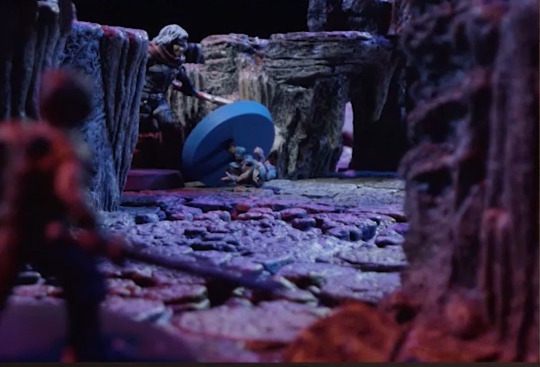
Visit our Episode 91 page here for more detail about Otohan, and check out our homepage for some additional highlights.
767 notes
·
View notes
Text
it's crazy how, if you really want, quantum leap can be a complex, multilayered text about a genderfluid transfeminine autistic time traveler scientist sent on a divine mission by God doomed to martyr herself for humanity while her sixty year old closeted bisexual best friend pines after her in an impossible cosmic tragic romance where they can never touch; with themes of trauma as a disruption of linear time, tragic heroism, dog motifs, etc. but also if you don't actively want it to be that, it's literally not that at all and that is an insane thing to say
#txt#queap#quantum leap#like. many such cases. beginning to understand what the spn people were talking about etc.#also for the record i am referencing another post that is about mash by tumblr user thealogie. i cant find it rn but its a permanent part o#my vocabulary now its embedded in my brain. thank you for understanding#my posts
313 notes
·
View notes
Text
ASMODEUS
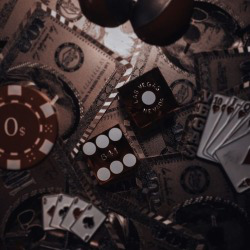


WHO IS HE?
Also known as Ashmodai, Asmodeus, Asmody, Asmoday; appears as a Great King 'Asmoday' in the Ars Goetia, where he is said to have a seal in gold and is listed as number thirty-two according to respective rank. He "is strong, powerful and appears with three heads; the first is like a bull, the second like a man, and the third like a ram or a goat; the tail of a serpent, and from his mouth issue flames of fire." Also, he sits upon an infernal dragon, holds a lance with a banner, and amongst the Legions of Amaymon, Asmoday governs seventy two legions of Spirits.
Asmodeus is one of the “seven princes of hell,” a demon whose wickedness is matched only by his talent. He specializes in spreading lust, and he doesn’t just prey on common people. Kings, queens, and even divine beings have been affected by his touch!
BASIC INFO:
Appearance: a strong and attractive young man with shoulder-length black hair, fiery orange-yellow eyes (like burning embers), black draconic wings, and ram horns. When angered, his hair catches in flames and burns to become short, blazing like embers. His horns become more prominent, and his eyes become even more fiery. He goes into battle with a staff or sword commonly, but sometimes with a mace. The dragon he is sometimes seen riding is a trusted friend of his from ages past. He can also appear as a bull or ram, which are aspects of his. His traditional art which shows him as having three heads is simply a symbolization of this.
Personality: Asmodeus is tremendously strong at heart and holds a great deal of wisdom and passion. Overall, he has a very resilient and noble attitude, and is also connected to lust and domination, as he indulges in sexual pleasures. Asmodeus enjoys luxury and sensuality, but can also be very dark and serious when needed, and can become quickly impatient with those who earn his disfavour. He can also feel war-like at times, but in a way that is similar to heroism. But his darker side, however, is called Asmodai, who is one of the most destructive and terrifying of all the demons.
Asmodeus is a master of emotions and knows how to rapidly gain favour by playing to the emotions of crowds, masses, or even single persons. He doesn’t have to lie, he simply uses emotional reasoning to appeal to peoples’ hearts in order to be convincing. He tends to be very kind-hearted, loyal, passionate, and steadfast.
Symbols: upside down red pentagram, cards, snake, crown, scorpion, seal of Asmodeus, money, the element air, and gambling
King/God of: demons, lust, passion, sex, valour, inner-strength, knowledge, craftsmanship, and the pursuit of power.
Culture: Demonic and Jewish
Plants and trees: rose, mint, sunflower, blackthorn tree, mandrake root, belladonna, nightshade, yew tree, lavender, poppy, cypress tree, jasmine, and snakewood tree
Crystals: leopards skin jasper, carnelian, peridot, ruby, cinnabar, black tourmaline, red jasper, and garnet
Animals: bull, snake, scorpion, ram, cats, and rooster
Incense: frankincense, rose, vanilla, cinnamon, and dragons blood
Colours: red, black, yellow, and silver
Numbers: 32 and 3
Zodiac: Aquarius
Tarot: The Devil, King Of Wands, and 6 Of Swords
Planet: Venus
Days: Friday the 13th, full moon, Valentine’s Day, Beltane, Summer Solstice, and January 30th-February 8th
Parents: Agrat bat Mahlat and King David
Siblings: N/A
Partner: Bensozia, Lilith, Sarah (the daughter of Raguel), and possibly many other demons and spirits
Children: N/A
MISC:
• Lust and carnal desires: Asmodeus is said to have great power over matters of lust and sexuality, and is often depicted as a seducer and temptress.
• Love and passion: he is believed to be able to stir up powerful emotions of love and passion in humans, leading them astray from their true path.
• Sexuality and physicality: Asmodeus is associated with the physical realm and is said to have great understanding and influence over the physical body.
• Material wealth and luxury: sometimes portrayed as a being of great material wealth and luxury, and is often depicted surrounded by opulence and excess.
• Power and authority: Asmodeus is a high-ranking demon in the hierarchy of hell, and is believed to have significant power and influence over humans and other supernatural creatures.
•’Use of seductive and manipulative techniques: Asmodeus is known for using charm, persuasion, and deception to achieve his goals and manipulate others.
FACTS ABOUT ASMODEUS:
• He HATES water, shellfish, seafood (especially fish), complaining, and pettiness.
• Known for his gambling or being over gambling.
• He is also associated with music, battles, and vengeance.
• He rules over the gambling houses of Hell and can bestow luck in gambling and loves to play poker and blackjack in the astral with his practitioners.
• Can be invoked to help with justice or vengeance spells.
• He dislikes birds, but likes cats.
HOW TO WORK WITH ASMODEUS:
When working with Asmodeus, it’s important to approach him with respect and caution. Remember that he is a powerful demon and should be treated as such. Be open to receiving his gifts of passion, sex, valour, inner-strength, and more, but also be prepared for his darker side. If you’re looking to connect with Asmodeus on a deeper level, try meditating with his enn (Ayen avage aloren Asmoday aken) or creating a sigil in his honor. And always remember to thank him for his gifts and offerings.
Here are some additional tips for working with Asmodeus:
• Build a relationship: Like any deity, building a relationship with Asmodeus takes time and effort. Try making regular offerings or dedicating a space in your home to him. You can also try researching more about his history and lore to deepen your connection with him.
• Focus on inner strength: Asmodeus is known for his rulerships of inner strength, which can come in handy when facing obstacles or challenges in life. Try working with him to cultivate this quality within yourself, and remember to thank him for his guidance.
• Use protection spells: Asmodeus can also be called upon for protection, especially in matters of the heart. Try creating a protection spell or talisman with his sigil to ward off negativity and attract positive energy.
• Connect with sexuality: Asmodeus is strongly connected to sexuality, making him a great deity to work with for matters of the heart and relationships. Try connecting with him through sexual energy or using his energy to enhance your own passion and desires.
• Always show respect: When working with Asmodeus, it’s important to always show respect and approach him with caution. He is a powerful demon, and should be treated with the reverence and respect that he deserves.
Another fun way to work with Asmodeus is to create a vision board that reflects his rulerships. Cut out pictures and phrases that represent passion, sex, valour, and inner-strength, and arrange them on a board or piece of paper. Place this vision board on your altar or carry it with you as a reminder of the gifts you’re seeking from Asmodeus.
PRAYER FOR ASMODEUS:
"Oh mighty King Asmodeus, ruler of the underworld and master of the infernal realms, I call upon you in this moment. I beseech thee to draw near and manifest your presence before me.
By your divine power and authority, I seek your guidance, protection, and assistance in the matters that concern me.”
“I acknowledge your greatness and offer my respect and devotion to you.
Hail Asmodeus, King of the Fire and Ruler of the Underworld!"
SIGNS THAT ASMODEUS IS CALLING YOU:
• He shows up in your dreams.
• Shows up as the King of Wands when using tarot cards.
• Feeling of being watched or accompanied by a supernatural presence when alone.
• Seeing or drawing toward animals associated with him (bulls, snakes, scorpions, rams, cats, and/or roosters).
• Unusual dreams or vivid visions, often involving themes of love, lust, or sensuality.
• Experiencing feelings of intense desire, passion, seductive, or sexual energy (in my personal experience).
• Feeling a sense of connection or communication with a supernatural entity or presence, especially during meditations or rituals.
• A sudden need or desire to explore darker or taboo aspects of your personality or desires.
• Feeling a stronger connection to the elements of fire or earth.
• Observing unusual synchronicities or patterns in your life that remind you of him.
OFFERINGS:
• Sexual acts.
• Roses.
• Cards.
• Frankincense.
• Dice.
• Food and drinks: pineapple, oat meat, alcohol (red wine, spiced rum, and whiskey), spicy food, lemons, limes, chestnuts, honey, chocolate, and natural made lemonade
• Bull, ram, or narwhal horns.
• Sunflowers.
• Black or red candles.
• Shadow work.
• Carnelians.
• Axes.
• Maces.
• Ornate swords.
• Money.
• Cinnamon scented candles, incense, perfume, (anything cinnamon scented overall).
DEVOTIONAL ACTS FOR ASMODEUS:
• Participating in activities that he may appreciate, such as creative pursuits, sexual expression, or pursuits of power and control.
• Boundary work.
• Leaving offerings such as wine, herbs, or flowers on his altar.
• Engaging in acts of passion and pleasure.
• Working towards personal goals and desires related to sexuality, power, and success.
• Singing and overall talking to him.
• Making a meal in his name.
• Shadow work.
• Knowing how to stand up for yourself.
• Learning to stand up for others.
• Lighting a candle or incense in honour of Him.
• Coming to terms with your sexuality.
• Body worship.
IS IT SAFE TO EAT OR DRINK AN OFFERING I GIVE TO HIM?
There is no clear consensus on whether it is safe to eat or drink an offering given to Asmodeus, as beliefs and practices vary greatly within different occult and magical traditions. Some practitioners may feel that consuming an offering is a way to establish a deeper connection with the deity, while others may prefer to dispose of the offering in a respectful manner after the initial ritual.
It is important to use your own judgment and discretion when deciding whether or not to consume an offering given to a deity. It is also advisable to research and follow established protocols and procedures for working with demons, deities, and entities.
#fyp#fypシ#fypシ゚viral#fypage#fyppage#tumblr fyp#satanism#satanist#deity#deity work#king asmodeus#demon#lust#information#helpful#occult
81 notes
·
View notes
Text
Hope? Hope often does that; its bright colors bewitch you like a child, anesthetizing your memory. Then the inevitable happens and suddenly there you are, going through an old painful cycle again. Reality becomes an unbearable De javu: same consequences, same broken heart, same impotence followed by anger.
But we must keep in mind that in certain circumstances, Hope is just another name for Desperation.
Quite sad how during this last year of 'election campaign' many people in my country again clung tooth and nail to the illusion that we're still a democratic nation… and not one tortured by an authoritarian regime that has hijacked all public powers —including the electoral one — for more than 25 years.
Whoever has paid attention to the patterns knows this: for years any election exercise in Venezuela is just a show organized by the government itself, necessary to legitimize its mandate before the world and thus continue in power under a poor disguise of democracy that legally protects its leaders while they commit their abuses.
And the opposition leaders know that. They know it very well. By postulating their candidates, they are not actually betting on winning, because they know it's impossible for the government to recognize it. Patterns don't lie; what the opposition is actually betting on (without any remarkable success) is that the exposure of the electoral fraud to the world will bring some kind of external help while the social revolt in the streets exerts considerable pressure. But that's not honest, because regardless of the final intentions of such political leaders, they always end up using the crowd in the streets as sacrificial cattle.
With elaborate speeches full of heroism and patriotism, opposition leaders emotionally manipulate civilians (mostly kids), inciting them to protest in the streets without any kind of organized resistance to protect them from the violent repression that always, always happens, no matter how peaceful the rally has started.
If we had an organized /armed resistance that, in the face of repression, protect the most vulnerable civilians as a huge shield, other birds would sing… but we don’t have it. Civilians protest defenseless in the streets, risking their lives; not to mention those unfortunate ones who end up in nightmare prisons unjustly accused of terrorism, with their future totally tarnished…
Worst part of this situation is watching helplessly how the crowd makes the same mistakes of the past: idealizing political leaders, abusing patriotism, being too emotional, leaving common sense aside, underestimating the oppressors and the imposed system, expecting too much from international entities, trusting too much in 'divine justice', praying without acting, and especially… not building a solid resistance.
It's been more than 25 years dealing with this shit, we should have learned something; it's ridiculous.
Responding to electoral fraud with pressure in the streets is beneficial for the opposition cause in the media, but it's counterproductive in the reality of the common citizen who doesn't want to be another pawn in a convoluted political plot.
How dangerous it is to be seduced by the emotional euphoria of manipulative speeches. Heroism and patriotism caress your wounded ego, your sense of belonging, your craving for meaning… and that bloody need for catharsis… only to leave you tempting death in front of a bunch of armed police and military who know nothing about ethics and honor.
Excessive hope and anger have that effect, they blind reason.
The average Venezuelan is too effusive, more passionate than rational, more idealistic than pragmatic. We also love drama and spectacle, and we have an innate weakness for the archetype of the liberating hero. All of this always works against us.
Burning and destroying things as a tantrum can make you purge a lot of anger after an injustice, the relief is ineffable. Smashing statues of tyrants, as well as the icons and properties that represent them, can also work as a moralizing symbol for an oppressed community….
But actions of this kind alone are not enough to combat an authoritarian government. It is fought through an organized resistance, with expert lawyers and hackers, with double agents in the police and militia; it is fought by stopping begging for attention from international entities and working the weaknesses of the imposed system; it is fought by presiding over the effusive youth who hinder the plan with impulsive acts, etc.
One more time: we don't need defenseless people on the streets risking their lives again without reliable guarantees.
Since there are no significant variables in our situation, if the mistakes of the past are repeated the result will be the same. Or maybe worse.
77 notes
·
View notes
Text

Confession: I think Wyll deserves to be treated like a prince after all he's been through. Thoroughly wined and dined and lavished with attention. And then of course I'll suck his soul out of his body through his dick. I'd give that man head so intense he achieves divinity and ascends into a God of Heroism.
308 notes
·
View notes
Text
Twilight Princess features a complex cast of characters that includes:
Humble farm boy who's quite literally dragged into a life of battle and heroism once the world he knows is plundered and ravaged by forces of shadow, who learns the way of the sword because he has to, and because those whom he holds dear will suffer if he fails, and whose spirit is truly that of the wild beast.
Exiled Princess of the Twilight who tragically loses everything, even her own form, and begins the story as a selfish, coquettish imp who fully intends to take advantage of the obvious hero and use him as a pawn in her revenge scheme, but has a monumental change of heart once she realizes that the people she's working with actually care about her and are willing to make sacrifices for her.
Lowly servant of the Royal Family of Twilight who was sent into a maddening rage when denied the crown, and whose rage turned to active malice once he was chosen by a veritable god to inherit their divine power; a man whose appearance as a terrifying, iron-clad ruler serves to shroud his weak, angry, childlike inner being.
Reviled Demon King of legend, whose insatiable lust for power and destruction kept his wretched soul burning even as he was banished to the underworld, and who manipulated an entire race of shadow beings simply to wrestle his way back into the world of Light; a man who, much like the Hero, harbors the aura of a primal beast.
And yet, my favorite character is:
Cold, withdrawn, Machiavellian toddler who is somehow both an economic genius and a fervent anti-capitalist.
#the legend of zelda#tloz#twilight princess#tp#twilight princess spoilers#link#link twilight princess#midna#midna twilight princess#zant#zant twilight princess#ganondorf#ganondorf twilight princess#malo#malo twilight princess#my writing
120 notes
·
View notes
Text
"The session always "knows" things about players. It knows Karkat has blood issues, so it gave him a planet full of bright red blood. It knows Dave has a thing about broken swords, which is tied up with his personal mythology related to the intersection between intense combat training for his destined role as a warrior, and deeply traumatizing abuse which causes him to resist the call to such heroism. He cites said abuse in the text above, in case there's any doubt this issue has been inseparably woven into the lore of his arc at an early stage. There's a lot to say about the broken sword as a symbol... First, there are two symbolic modes, an "Unbroken Sword" and a "Broken Sword," which have meaning in relation to each other. The simplest translation is that the unbroken sword is "The fully manifest, wholly embraced heroic arc. Suppressing reservations, answering the call, putting the tough training to use, despite the cost to oneself." Versus the broken sword, which is "The fractured heroic arc. An incomplete, broken self stemming from past trauma. A conflicted semi-refusal of the call, resulting in pursuit of combat and quest-fulfillment navigated through half-measure, wavering resolve, and compromised investment." Only one of these symbols can be fully embraced, and it means something to embrace one over the other. It becomes a statement Dave is making about himself, and the type of person he wants to be. But the statement has to be understood by him to be meaningful, and this understanding comes through his long-term inner reflections over his arc. The game also seems to provide frequent clues to help him understand these symbols and choices. It keeps offering up broken swords, or more specifically, a whole sword that can only be obtained by figuring out how to break it."

"So here's a spin on the Arthurian legend (Caledfwlch is another name for Arthur's Excalibur) where the sword, instead of being removed through strength or the divine touch of a chosen one, must be broken to be freed. There's no other way, since this is how this game challenge was designed to be solved. It says, "This is a symbol for your heroic journey, and to some extent, who you are as a person. Now, what will you do with it?" In the long run, this sword-based Sburb quest does appear to have a formal endpoint, which is Dave using this sword to have his denizen forge the Royal Deringer, a much fancier mythical sword. And in forging that sword, he "heals" it, converting it to an unbroken sword symbol. Heroic arc, back on track, right? Except to wield that sword, Dave has to break it too, simply by touching it, as if his identity being linked to a broken sword is inescapable."

"There are ways of reading into what this means. Maybe it's that making yourself whole as a person isn't so simple? Maybe it's that Dave embracing the broken sword as his heroic talisman corresponds with his embracing who he is as person, flaws and all? Those things aren't going away, and they contribute to making him who he is. Similar to Rose's arc, which is more about embracing her imperfect sense of humanity rather than satisfying an external sense of obligation that includes the false promise of repairing the flaws of a damaged person through a path of shallow narrative regimentation. There are echoes of "two people who can't be fixed, and that's okay" in each other's arcs, but a lot of differences in the way their respective roads are paved to reach the destination." -Andrew Hussie
227 notes
·
View notes
Text
When Marco came to meet Ace's brothers. He was prepared for a lot of things. Especially with the news that was about to be announced. Specifically, one particular piece of news.
Ace was expecting a baby. He's gonna be a daddy.
Another news that Marco is also the father of the baby.
And he was to tell Ace's overly loved and adored younger brothers that their twenty-two year old dearest older brother would make them uncles.
It should all go like a Vegapunk clock. Easy and fast.
And the reunion itself was going well enough.
«Luffy you hold, I hit. That lousy bird totally fucked up.»
Until they got to the main point.
Marco is in no way ashamed of the situation.
And he's not referring to the fact that his partner is pregnant (they were still in shock until the urgently summoned Bay confirmed it three times), but to the fact that he's being held in a tight vise, pressed by the Conqueror's will, and he's gonna be kicked with armament haki by two lousy guys
For the sake of accuracy, it should be noted that one lousy guy was announced as the new Emperor not so long ago (and the awakening of the devil fruit that turned out to be Mythical Zoan), and the other is the second face of the Revolutionary Army and the Dragon Emperor, who is praised on the verge of divinity and heroism.
However, Marco had hoped that the news of the birth of their precious Niii-chan's baby would slow them down a bit.
Things had turned out that way.
The Conqueror's will began to press harder, and the smile that had so brightly adorned the rubber man forever was replaced by an angry grimace.
The revolutionary on the contrary boasted an extremely wide grin.
«Guys, guys! It's okay, I want this. And don't do it again with Marco! It's good news, I'm having a baby! And you guys are going to be uncles!»
Thanks Ace. Perfect timing.
And just like that, instead of the pirate and revolutionary who eagerly wanted to ritually murder and mock the remains of Marco, appeared sobbing and wiping away tears of happiness with giant handkerchiefs, the snotty little brothers.
They threw Marco aside after Ace's words and rushed to their older brother for hugs and questions and requests to touch his already rounded belly, which had previously been hidden by a poncho.
#one piece#pregnancy au#asl brothers#marcoace#portgas d ace#pregnant ace#fanfic#drabble#protective Sabo#protective Luffy#mine
36 notes
·
View notes
Text
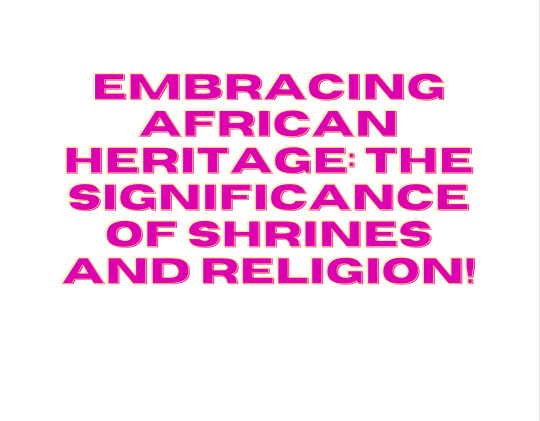
Embracing African Heritage: The Significance of Shrines and Religion
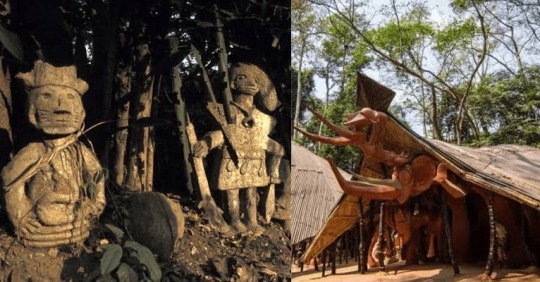
Africa, often referred to as the cradle of humanity, boasts a rich tapestry of cultures, traditions, and spiritual beliefs that have endured for millennia. Central to this heritage are the sacred shrines and profound religious practices that serve as pillars of community, identity, and connection to the divine.
Shrines, both natural and constructed, hold a special place in African spirituality. These sites are often nestled in the heart of communities or hidden within the vast landscapes of the continent. From the iconic pyramids of Egypt to the humble groves of the Yoruba in Nigeria, each shrine reflects a unique blend of history, mythology, and reverence for the ancestors.
One of the fundamental aspects of African religion is the veneration of ancestors. Ancestral shrines serve as focal points for prayers, offerings, and rituals aimed at honoring those who came before. These ancestors are believed to possess wisdom, guidance, and protection, and their spirits are invoked for blessings and assistance in times of need. In many African societies, the bond between the living and the dead is deeply cherished, with rituals and ceremonies reinforcing the interconnectedness of past, present, and future generations.
Moreover, African shrines are often associated with specific deities or spirits, each embodying different aspects of the natural world or human experience. Whether it's Oshun, the Yoruba goddess of love and fertility, or Anubis, the ancient Egyptian god of the afterlife, these divine entities are revered through elaborate ceremonies, dances, and sacrifices. Through these rituals, devotees seek communion with the divine and seek guidance in matters of health, prosperity, and spiritual growth.
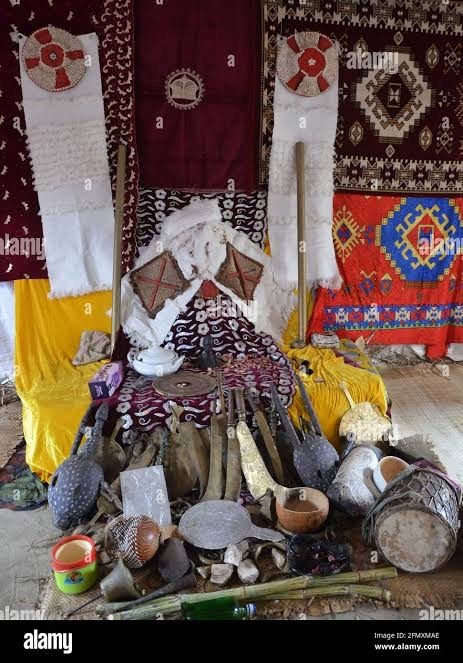
However, the significance of African shrines extends beyond the realm of spirituality. They are also repositories of cultural knowledge, oral traditions, and historical narratives passed down through generations. Within the sacred precincts of these sites, elders impart wisdom, storytellers weave tales of heroism and creation, and artists imbue their craft with symbols and motifs that speak to the essence of African identity.
Unfortunately, the colonial era and the spread of Christianity and Islam have often marginalized indigenous African religions, dismissing them as primitive or pagan. Despite this, many communities continue to uphold their traditional beliefs, adapting them to the challenges of modernity while preserving their core values and rituals. In recent years, there has been a renewed interest in African spirituality, fueled by a desire to reclaim cultural heritage and reconnect with ancestral roots.
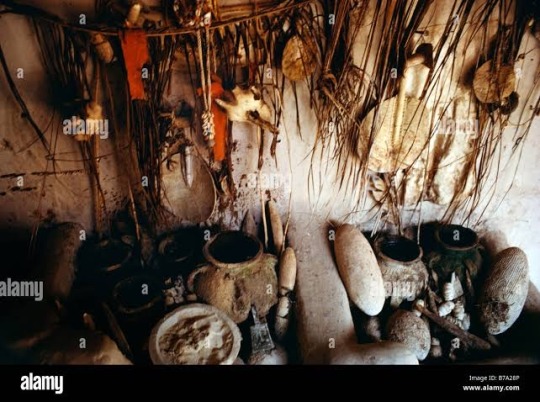
In conclusion, African shrines and religion embody the resilience, diversity, and spirituality of the continent's people. They are more than just places of worship; they are living testaments to the enduring legacy of Africa's past and the enduring power of its traditions. As we navigate an increasingly interconnected world, embracing and honoring Africa's rich heritage is not only a matter of cultural preservation but also a celebration of the human spirit's boundless capacity for faith, creativity, and reverence for the divine.
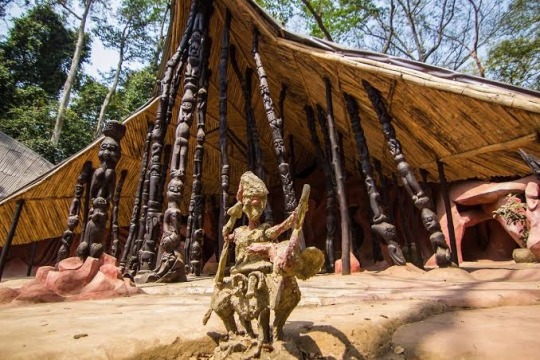
#life#animals#culture#aesthetic#black history#history#blm blacklivesmatter#anime and manga#architecture#black community
62 notes
·
View notes